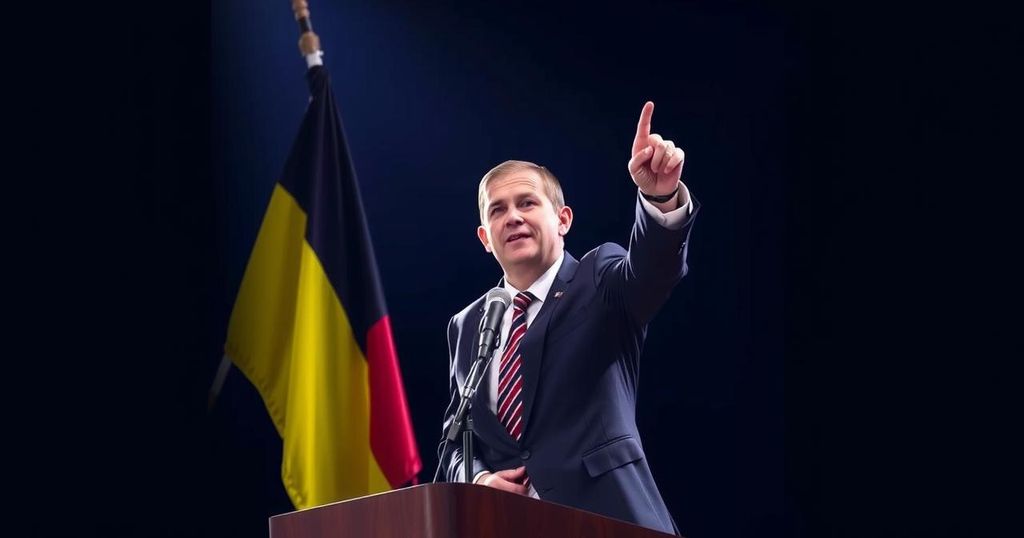Calin Georgescu, a hard-right populist, has unexpectedly led Romania’s presidential election with approximately 23 percent of the votes, ahead of Prime Minister Marcel Ciolacu. This outcome raises serious concerns about the country’s pro-European and pro-NATO orientation as Georgescu plans to contest Ciolacu in a December run-off vote.
In a surprising turn of events, Calin Georgescu, a hard-right populist opposed to both the European Union and NATO, has taken a significant lead in Romania’s presidential election. With approximately 98 percent of votes counted, Georgescu secured nearly 23 percent, narrowly ahead of Prime Minister Marcel Ciolacu, who garnered about 20 percent, according to partial results from the Central Electoral Bureau. The election outcome raises questions about Romania’s pro-Western stance, as Georgescu is set to face Ciolacu in a run-off scheduled for December 8.
This results marks a significant upset for Georgescu, who was relatively unknown and had been polling at approximately 5 percent prior to the election. His campaign, conducted primarily via social media platforms like TikTok, contrasts sharply with the expectations established by exit polls that favored Ciolacu. Alongside Georgescu and Ciolacu, Elena Lasconi from the Save Romania Union party and George Simion from the far-right Alliance for the Unity of Romanians followed with nearly 19 percent and 14 percent of the votes, respectively.
Georgescu’s political platform includes controversial positions such as opposing military aid to Ukraine and questioning NATO’s defensive capabilities, particularly in light of the ongoing conflict resulting from Russia’s invasion. His views on Romania’s historical figure, Ion Antonescu, have also attracted attention, as he controversially refers to Antonescu as a national hero despite his alliance with Hitler during World War II. Following the announcement of the results, Georgescu remarked that the voters had “cried out for peace” and emphasized the resounding nature of their demands.
Romania is a European Union and NATO member that shares a lengthy border with Ukraine. The ongoing conflict in the region has prompted Romania to adopt a strong stance in support of Ukraine. The upcoming presidential election signifies a momentous shift in political sentiments within the country, reflecting a potential pivot away from traditional pro-European positions towards more nationalist and populist narratives, as seen with Georgescu’s rise. His unexpected lead in the polls challenges the established political landscape and highlights the changing priorities of Romanian voters in the face of economic challenges, including rising living costs.
The unexpected surge of Calin Georgescu in Romania’s presidential election signals a notable shift towards hard-right populism and raises critical questions about the future of the country’s foreign policy alignment, particularly concerning NATO and the EU. With Georgescu’s controversial views and previous lack of visibility, his campaign’s success in a run-off against incumbent Prime Minister Marcel Ciolacu will be pivotal for shaping Romania’s political trajectory in a rapidly changing geopolitical context.
Original Source: www.aljazeera.com






